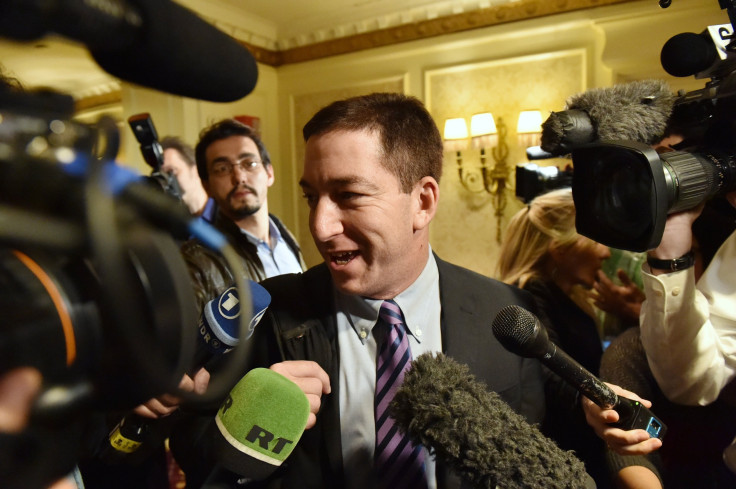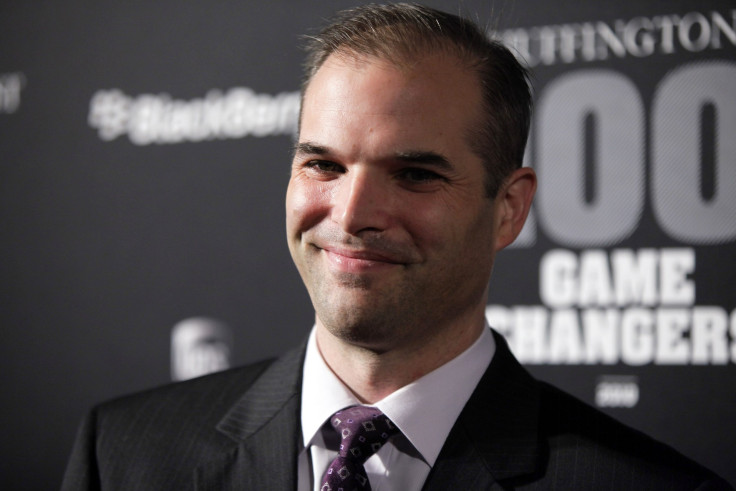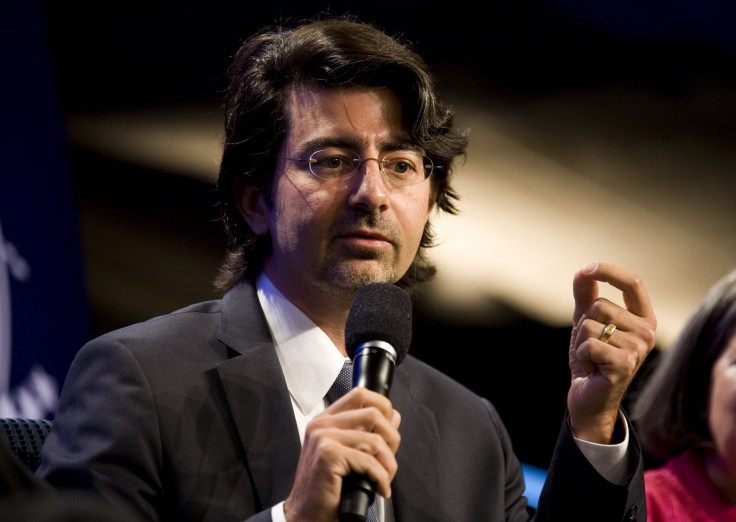Beyond Edward Snowden: A Second Look At First Look Media

First Look Media wants to get beyond Edward Snowden. One can hardly blame it since the past year or two has been a public and painful experiment in creating the world’s premier spot for self-described fearless, adversarial journalism. False starts, hang-ups and ego clashes culminated in the well-documented explosion of Matt Taibbi’s would-be satirical magazine Racket last year, with several high-profile resignations in the months after.
In a visit to the startup, founded in 2013 by eBay billionaire Pierre Omidyar, International Business Times spoke with Michael Bloom, the company’s new president and general manager. He described First Look’s new direction toward broader coverage beyond national security and surveillance and a major shift into visual storytelling through film, documentary and television.
“When First Look Media started, they made a bunch of what I’ll call rookie errors,” Bloom said in one of the glass-encased conference rooms at the company’s New York headquarters in the Flatiron District.
“That’s not a pejorative term, rookie errors,” he added. “Because as I unpacked the whole thing, I realized there was nothing systemically wrong. They went in with the best of intentions but had missteps, like many startups do, along the way.”
“Having a purpose-driven company is hard,” he said.

The staff at First Look doesn’t shy away from referencing what members call their bumpy past: the bare-bones launch of its flagship publication, the Intercept; the Taibbi drama, the departure of John Cook and unsparing public statements from ex-staffers like Alex Pareene and Ken Silverstein. Most recently, as IBTimes reported in July, chief revenue officer Michael Rosen left after spending a little over a year at the company. He ended up at FourSquare.
“Michael’s departure was not indicative of anything in any way,” Bloom told IBTimes, adding the company’s strategy was different during Rosen’s tenure.
Bloom came to First Look from the Guardian in March, where he served as CEO of the company’s North American operation. He met Omidyar last summer after the billionaire reached out to him in need of someone to right the ship. Bloom said once he arrived at First Look, he found a picture very different from what he had read in the press.
“There were a lot of things that were reported that were accurate, but the portrayal of the entire thing, in additional to being unfavorable, wasn’t quite fair,” Bloom said. He called Omidyar “one of the most humble people I’ve ever met.”
But the problems were real: “There were about 60 people, some of whom are still here, who were talented but didn’t necessarily know how to run this kind of operation,” Bloom said. The most pressing issue was filling a vacuum of leadership, and so he got to work assembling a “high-caliber” management team to bring some order.
Bloom brought on Kathleen Baumann, his colleague from the Guardian US, who served as senior vice president of finance, to become First Look’s chief financial officer. He hired Adam Pincus, formerly of GroupM Entertainment and Sundance Channel, as executive vice president of programming and content, and Dan Shearer, a former vice president of product for Major League Baseball Advanced Media, as head of “product and user experience.” Jeff O’Connell, leaving a position as senior vice president of technology at Maker Studios, is the new chief technology officer.
Also on board is Betsy Reed, former executive editor at the Nation, who replaced Cook as the Intercept’s editor-in-chief in January.
“This is probably the best set of people I’ve ever had the opportunity to work with,” Bloom said.
With two major players from programming and entertainment coming on, there’s little mystery as to how First Look wants to redefine its mission, its style and its brand.

First Look’s Second Start
First Look’s original plan, to develop a portfolio of media sites, dissolved during the Taibbi affair.
The new vision is video-centric: documentaries, on-the-ground “real-time” coverage of raw news, and partnerships with film and TV companies. Beyond that, the startup wants to bring in more talent to produce podcasts, photo essays, and the like.
If the spirit behind First Look was originally writers like Glenn Greenwald, Jeremy Scahill and Taibbi, its new heart and soul seems to be filmmaker Laura Poitras, who won an Oscar this year for the documentary “Citizenfour,” featuring Edward Snowden.
The first of those partnerships comes this fall in the film “Spotlight,” which First Look co-produced with Participant Media, known for films such as "An Inconvenient Truth," "Syrianna," and "Good Night and Good Luck." The film, a heavy offering about the journalism that exposed a cover-up of Boston priests’ sexual abuse of children, stars Mark Ruffalo, Michael Keaton and Rachel McAdams.
“We’re thinking how to expand our editorial lens and go beyond surveillance and the things we were initially established for -- the release of the Edward Snowden documents and the reporting surrounding that,” said communications director Alexis Stoller, who sat a few seats away from Bloom. One possible area of coverage sounds reminiscent of Taibbi’s would-be role at the company, namely investigating corporate and financial corruption and malfeasance, rather than focusing solely on Big Brother.
But Bloom spoke of far broader departures from the muckraking spirit of the Intercept.
He separates First Look into a nonprofit side, namely the Intercept, and a profit-driven side that he envisions as a new hub for “independent voices” covering news, media, culture, comedy and even sports. That’s what he and his team are in charge of building.
When asked about the departure of former revenue chief Rosen, Bloom didn’t elaborate much on the status of First Look’s revenue plan or particular strategies going forward. There are no ads on the Intercept, and it’s unclear whether Rosen’s mission, described by Omidyar last year as forming business deals around “distribution, social engagement and technology” still exists without him.
In terms that have become fairly familiar among the young guns of media startups, Bloom wants First Look to create “the world’s leading platform for independent voices,” a sustainable business model, and nurture a community of cutting-edge writers, filmmakers, writers and, yes, comedians.
“I have a clear vision of the future here,” Bloom said.
© Copyright IBTimes 2024. All rights reserved.












